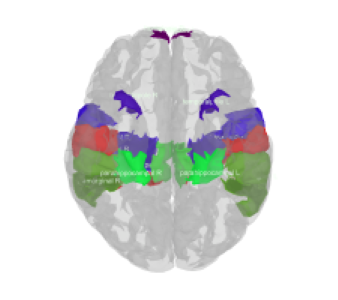AI diagnostics

In our lab we develop machine learning and computer vision tools in neurology for medical decision support systems. Our solutions to be integrated with the clinical routine in hospitals for such diagnosing neurological disorders as: Schizophrenia, Major Depression and Bipolar Disorder (MRI/fMRI/EEG), Epilepsy (MRI) and Autism (EEG).
Magnetic resonance imaging (MRI) is proved to be a powerful tool for brain visualisation in diagnostics. Disease patterns or biomarkers are being extensively explored in brain structure and function with functional magnetic resonance imaging (fMRI). The international research is being conducted for most neurological disorders, including Epilepsy, Autism, Brain tumors as well as degenerative disorders (including Alzheimer, Parkinson, dementia, etc.) and psychiatric diseases (Schizophrenia, Bipolar Disorder, Depression and others). Lately, insights from neuroimaging-based biomarker research began to be translated into clinical practice. In our group we work on decision support systems based on computer vision methods for Epilepsy Diagnosis diagnosis for Focal Cortical Dysplasia, and most spread psychiatric disorders: Major Depression, Bipolar Disorder, ADHD, Schizophrenia.
Electroencephalography (EEG) is a relatively cheap and widespread non-invasive technique of measuring brain electrical activity. Psychiatric diseases like depression and autism could change normal patterns of brain activity which is reflected in EEG data.
In this project we aim at finding objective biomarkers of depression and child autism from resting-state or task-based EEG data. This involves new methods for data cleaning, original feature extraction methods from time-series data as well as deep learning approaches including Temporal Convolution Networks.
Papers
-
Pominova, M., Artemov, A., Sharaev, M., Kondrateva, E., Bernstein, A., Burnaev, E., 2018. Voxelwise 3D Convolutional and Recurrent Neural Networks for Epilepsy and Depression Diagnostics from Structural and Functional MRI Data, in: 2018 IEEE International Conference on Data Mining Workshops (ICDMW). IEEE, pp. 299–307.
-
Sharaev, M., Andreev, A., Artemov, A., Burnaev, E., Kondratyeva, E., Sushchinskaya, S., Samotaeva, I., Gaskin, V., Bernstein, A., 2018. Pattern Recognition Pipeline for Neuroimaging Data, in: 8th IAPR TC3 Workshop on Artificial Neural Networks in Pattern Recognition, September 19-21, 2018, Siena, Italy. pp. 306–319. https://doi.org/10.1007/978-3-319-99978-4_24
-
Sharaev, M., Artemov, A., Kondrateva, E., Ivanov, S., Sushchinskaya, S., Bernstein, A., Cichocki, A., Burnaev, E., 2018. Learning Connectivity Patterns via Graph Kernels for fMRI-Based Depression Diagnostics, in: 2018 IEEE International Conference on Data Mining Workshops (ICDMW). IEEE, pp. 308–314. https://doi.org/10.1109/ICDMW.2018.00051
-
Ledovsky, A., Mnatsakanian, E., Sharaev, M., Burnaev, E., 2019. O-21 Separation of major depression patients from healthy controls using machine learning approach to resting-state EEG. Clin. Neurophysiol. 130, e28. https://doi.org/10.1016/j.clinph.2019.04.337